Agriculture in Fallon is nothing new; however, there are new (or perhaps very old) agriculture methods being developed, keeping our community at the forefront of innovation.
Bucking the tide of conventional produce and crop growing methods, the Coverston family is learning new ways to grow healthier crops with higher yields, all while interfering with the soil as little as possible. How exactly? Magic. Or that is what Tim Coverston will tell you. And after that, he will tell you all the magic happens in the soil.
The Coverstons, owners of First Fruits Sustainable Farms, have spent the last few years making mistakes, learning what not to do, and stumbling headlong into ideas and methods that have changed the way they cultivate their crops and organic produce. What first appeared to fit the bill as “sustainable” growing practices has developed into something even better – regenerative agriculture.
A regenerative agriculture system is one that improves year after year, with minimal (or no) outside input from man. Sound far-fetched? In the ways of modern farming, it is. But not in the ways of mother nature.
“Sustaining anything in a degraded state is status quo,” says Coverston, “our goal is to improve the resources, wherever you are that day, and make it better for the next generation than we found it.” From the construction field where Coverston got his start building houses, to actual fields, Coverston takes this mission very seriously and says sustainability just is not enough.
In a not-so-quick lesson on soil biolo- gy, Coverston explained the core concept behind regenerative agriculture. “There are five tenants to soil health,” he stated, “Soil must have a covering, it must have more than one thing growing in it, living roots should stay in the ground as long as possible, livestock integration, and there must be minimal mineral or mechanical disturbance.”
Most of these concepts are contrary to modern farming and even modern gardening. Both in the cornfield or the backyard garden, it is uncommon to see the ground covered. All roots and remaining vegetation from the last harvest are pulled from the ground, and the soil is turned over, often several times. Usually, some form of chemical fertilizer or weed control has been applied. In the case of cover crops (alfalfa, wheat, triticale, grasses, etc.), they are grown as mono crops. Some farmers will rotate fields or grow winter wheat then plant corn for a fall harvest, but they rarely have multiple plant types combined.
According to Coverston, mono crops are not found in nature. There are always a variety of plants growing very closely together at the same time. Also, most nutrient-dense soil will have a covering, “Think of the rich black soil up in the Sierra’s,” Coverston explained, “it is covered with pine needles and leaves, which deliver minerals to the soil. Soil without minerals is dirt – which is a lot of what we have here.”
No matter how hard man tries to exact the science, he cannot replicate nature. So, Coverston has decided to let nature do what it does best. By using the basic principles of regenerative agriculture and following in the footsteps of pioneers in the field, Coverston and his family are seeing astounding results. They are planting blueberries next to cucumbers, combining legumes and wheat in the same field, and watching life spring forth in dirt, now soil, that had been dormant for over 30 years.
“Healthy soil, healthy plants, healthy people,” says Coverston.
The Coverstons in their First Fruits operation do not believe in babying their crops, “They’ve got to make it on own their own,” says Coverston. “Sometimes it is accidental success, but most of the time we are responding to what God puts before us.” They are currently farming a total of 59 acres and growing both produce and cover crops. They also are one of two licensed chicken growers in Nevada, are USDA certified beef and pork sellers, sell farmfresh eggs and their own honey. The family operation hit nine farmer’s markets a week during the summer season last year, all while doing their own harvesting. This year, they are taking on a few interns and are looking forward to the first harvest of produce in June.
Coverston loves sharing what is working for First Fruits, even though he admits there is a lot left to learn. Pointing others in the direction of regenerative agriculture, he suggests looking into what leaders in the area are doing, specifically Gabe Brown, Dan Kittridge, and Ray Archuleta, and recommends the film, Kiss the Ground.
The Coverstons’ methods might not be orthodox. But between learning what not to do, winging it, a lot of hard work, and no small amount of faith, they are well on their way to leaving the Lahontan Valley better than they found it.



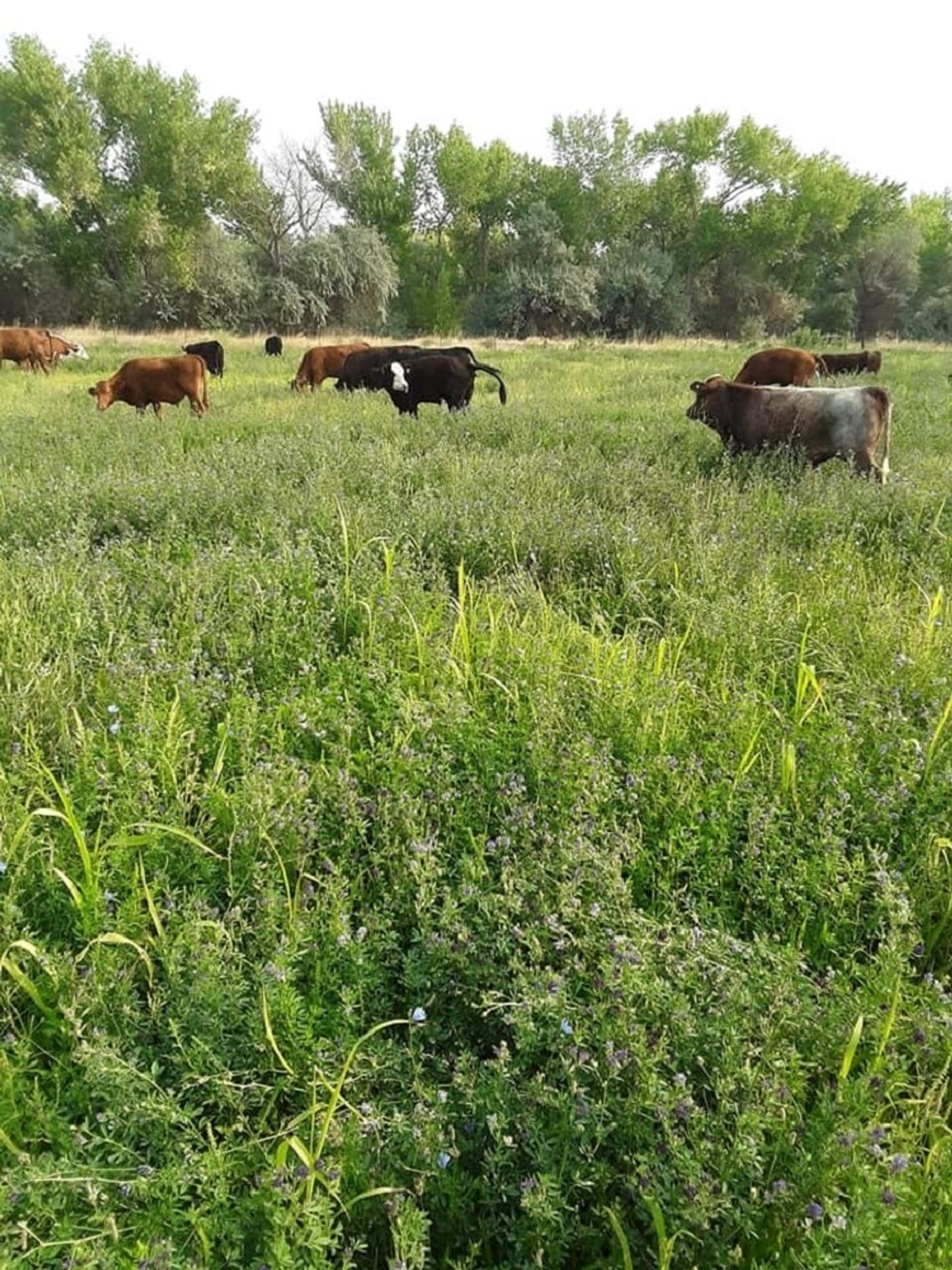
































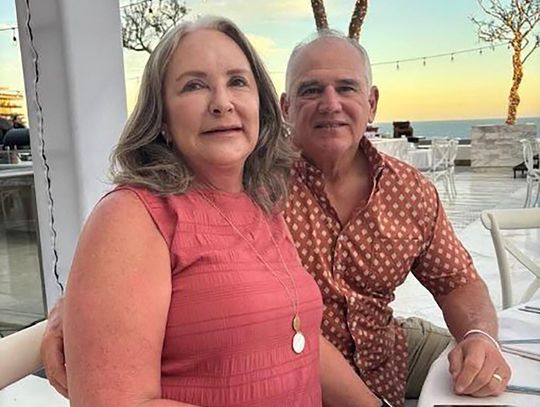
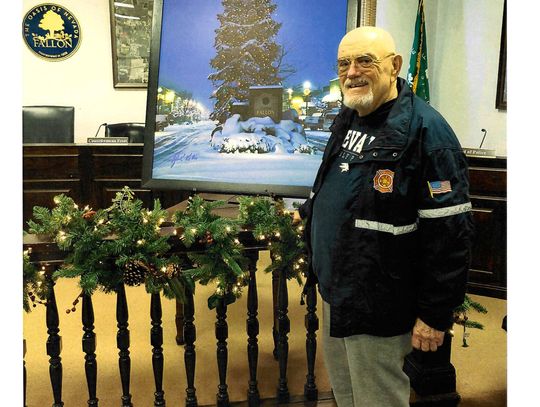

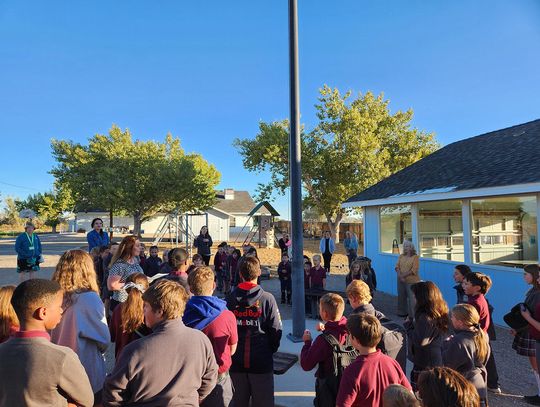
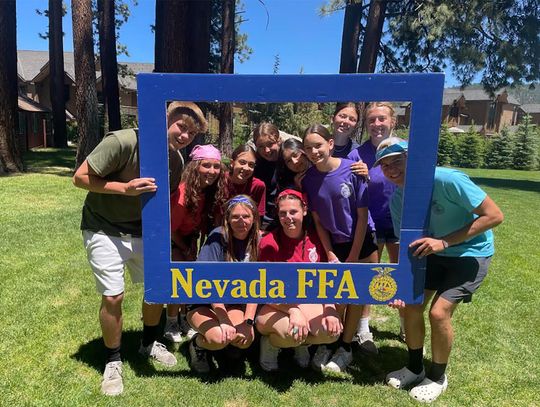

Comment
Comments